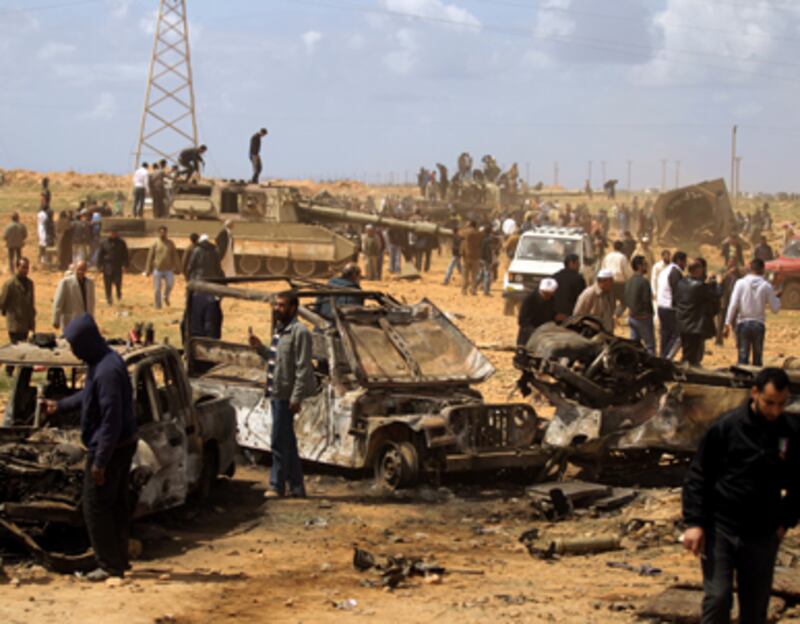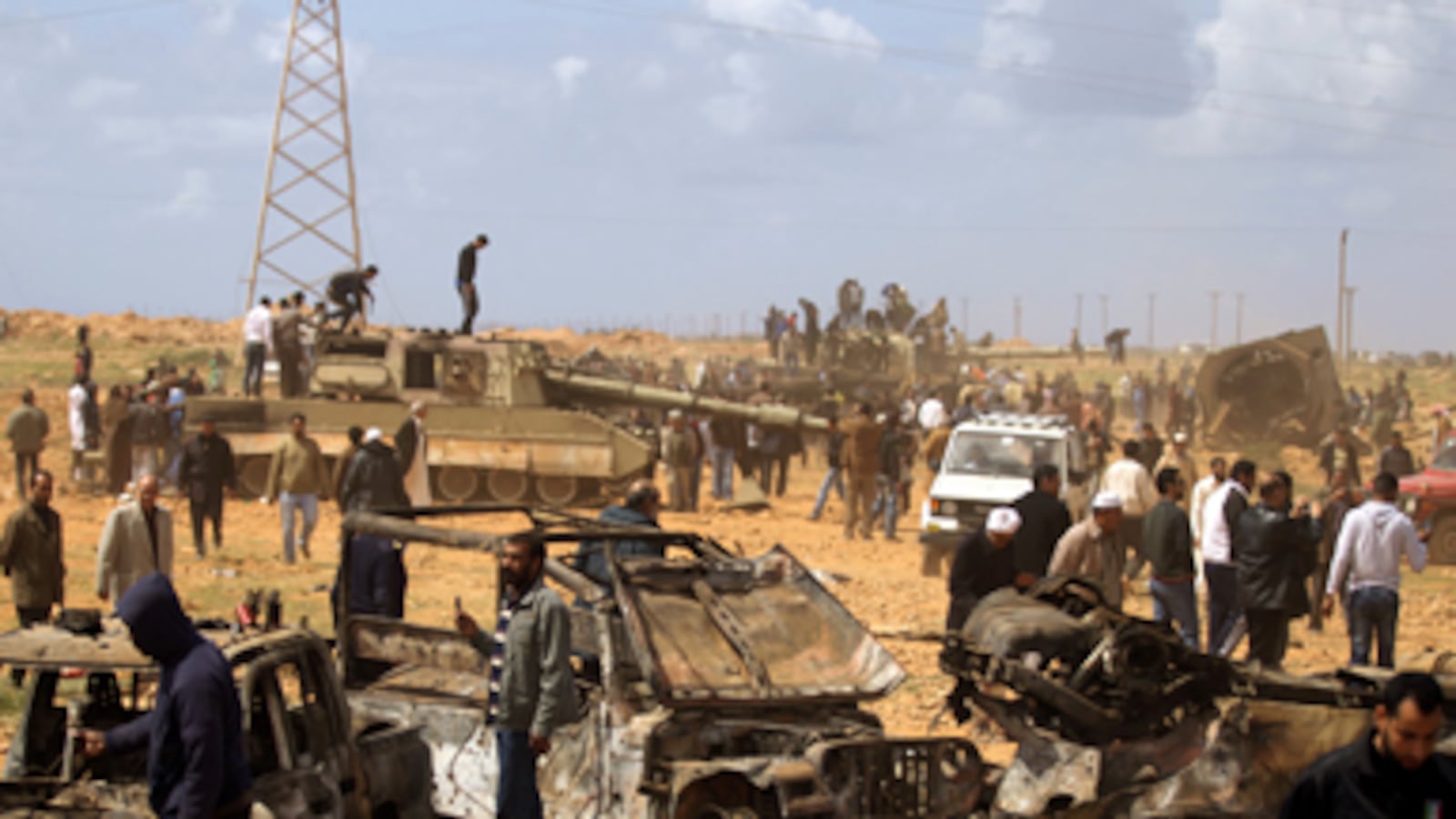American officials insist that they are eager to hand off the Libyan war to the allies to run. They want to avoid, says The New York Times, lengthy involvement in "a third armed conflict in a Muslim country." Easy to understand; not so easy to accomplish. Despite what news reports say, the Libyan war is very much an American show. We are supplying not only the logistics, but the bulk of the weaponry, the crucial technology, and the more important personnel. We could carry the entire weight of battle very easily without our titular allies; but none of them, singularly or in combination, could do it without us.
Indeed, the Libyan war (and an attack on a sovereign country is a war, no matter how many times the White House says it isn't) illustrates perfectly the proposition that there are no multilateral armed forces any longer. Other countries may contribute a bit of ordnance or a handful of planes, but, in truth, only the United States can project power over any distance for any length of time. Nobody else can even come close.

Although the media keep reporting the Libyan war as though the U.S. is some sort of junior partner, the truth is the other way around. It is an American war, with a bit of support from other players. Here the data are instructive. Remember the opening salvo of the war, those 124 cruise missiles launched against the Libyan air-defense systems? According to the headlines, they were fired by American and British warships. Indeed they were. The Americans fired 122. The British fired two. Many of the U.S. Tomahawks fired so far—probably most, possibly all—were evidently the Block IV model, the latest generation, smart and maneuverable in midair, and a weapon possessed by no other member of the coalition. (Cruise missiles cost over $1 million apiece, and the newer models as much as $2 million. Are we likely to run out? According to National Journal, the Defense Department buys 200 Tomahawks each year—more than any other country has in its entire arsenal.)
The cruise-missile attacks were aimed largely at degrading Libya's antiaircraft defenses, which were considerable. As several observers have pointed out, no member of the coalition aside from the U.S. possesses the expertise and munitions to accomplish that goal. The U.S. has supplied nearly half the aircraft involved in Operation Odyssey Dawn, including the B-2 Stealth bombers that flew all the way from Missouri to join the war, and has flown the great majority of the actual combat missions. Although the Defense Department insists that this week the allies will begin to take the lead, flying most of the sorties, it is not clear whether they have the money. The U.S. spends more than 40 cents of every defense dollar spent on the face of the earth. The Libyan war is likely to cost well in excess of $1 billion a week. Nobody else can afford it. Thus, the longer the war drags on, the more likely it is to become an all-American show.
The United States is running the war, and will continue to do so. The internal battles are a sideshow.
France, for example, possesses only one aircraft carrier, the Charles de Gaulle, currently stationed off the Libyan coast. Britain has none. The British do have a single carrier under construction, but it will carry only helicopters. Remember the Harrier jump jet, the vertical takeoff and landing craft the British designed and Hollywood made famous? They are a mainstay of the U.S. Marine Corps, but Britain no longer operates any; the next delivery is scheduled for 2020.
Already the countries involved in Odyssey Dawn are sniping at each other over who should head the ridiculous command structure—at the moment, an unwieldy triumvirate—but their battle is really about credit, not about responsibility. The U.S. is running the war, and will continue to do so. The internal battles are a sideshow. Italy, for example, does not want its pilots to fire, except at aircraft that are actually airborne. But Italian pilots have flown no combat missions yet, and the Libyan air force, in practical terms, no longer exists.
There is a lesson here for those who support what are known in international law as humanitarian interventions. Unless the intervention is very small or very swift or both, no country in the world but the U.S. can do it. We alone have the money, the technology, and the trained personnel. We alone have shown the willingness and ability to project power over long distances for a sustained period. Many people, both in America and abroad, are uneasy with this preponderance. But it cannot be wished away. If other NATO countries hope ever again to be equal partners, they will have to increase their defense spending significantly. True, they could wait instead for us to reduce ours. But then the world would be left with no one able to prevent a slaughter—even in those rare instances when the world decides to try.
Stephen L. Carter is the William Nelson Cromwell Professor of Law at Yale, where he has taught since 1982. His seven nonfiction books include God's Name in Vain: The Wrongs . His first novel, The Emperor of Ocean Park (2002), spent 11 weeks on the New York Times bestseller list. His twelfth book, The Violence of Peace: America's Wars in the Age of Obama , was published by Beast Books in January.






